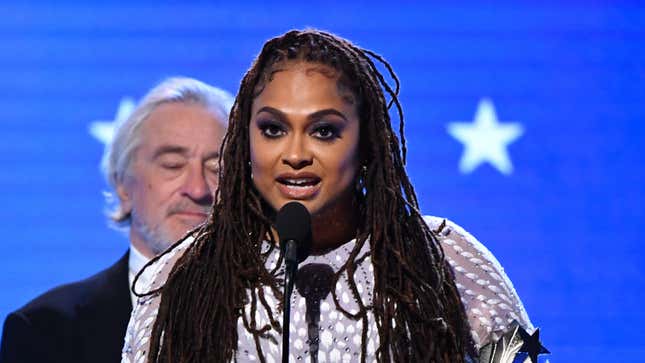
Sentient salt lick Linda Fairstein has filed a federal suit against When They See Us writer-director Ava DuVernay due to Fairstein’s portrayal in the limited series, TMZ reports. Fairstein filed the lawsuit Wednesday, claiming she gave DuVernay a warning prior to the series airing on Netflix. She further claims DuVernay simply told her she couldn’t object to the material prior to seeing the series.
Along with DuVernay, the former New York City prosecutor is also suing Netflix and the series’ co-writer Attica Locke for defamation. She is asking for damages and “a public apology, removal of the scenes she calls false and a disclaimer added that labels the series as a dramatization and not a true story.”
TMZ continues:
Once it came out in June 2019, Fairstein says every episode in which she appears portrayed her as a “racist, unethical villain who is determined to jail innocent children of color at any cost.”
In the suit, obtained by TMZ, Fairstein objects to nearly every single aspect of the case ... as it’s portrayed in the series. She denies taking any of the following actions: unlawfully interrogating unaccompanied minors, calling for a roundup of “young black” thugs, manipulating the timeline to pin the jogger’s rape on the Central Park 5, referring to people of color as animals, directing NYPD detectives to coerce confessions, and suppressing DNA evidence.
This suit comes months after police interrogation firm John E. Reid and Associates filed a suit against DuVernay and Netflix, claiming defamation.
Since the premiere of When They See Us, the social pressure against Fairstein has heightened and she recently faced what many critics believed to be long overdue consequences (including being dropped by her agent and publisher) for her role in the unjust prosecution of the now Exonerated Five. These are the breaks. Since Fairstein is both an attorney and a crime fiction author, she is likely familiar with the inner-workings of dramatization and the complicated legal aspects that come with it.
As legal guide site Nolo states, “A defamatory statement must be false — otherwise it’s not considered damaging. Even terribly mean or disparaging things are not defamatory if the shoe fits. Most opinions don’t count as defamation because they can’t be proved to be objectively false. For instance, when a reviewer says, “That was the worst book I’ve read all year,” she’s not defaming the author, because the statement can’t be proven to be false.”
Sue Weinman brought up a good point in a June 2019 article she wrote for the Washington Post noting, “Fairstein’s pursuit of justice for victims of sexual assault didn’t take into account newer developments in how we understand the criminal-justice system to work — or not work. The idea that eyewitness testimony is the “gold standard” has been disproved with every exoneration as a result of DNA evidence. The emphasis on confessions has had to take into account that confessions can be coerced — and that inconsistencies, such as the ones in the Central Park Five’s varying accounts of the evening, really do matter. And the recognition that black and brown men and boys are disproportionately funneled into the prison system made it vital that we measure justice in more holistic terms.”
Netflix has responded to the recently filed suit. “Linda Fairstein’s frivolous lawsuit is without merit,” a spokesperson said, via Deadline. “We intend to vigorously defend When They See Us and Ava DuVernay and Attica Locke, the incredible team behind the series.”
The Root has reached out to DuVernay’s legal team for comment.



